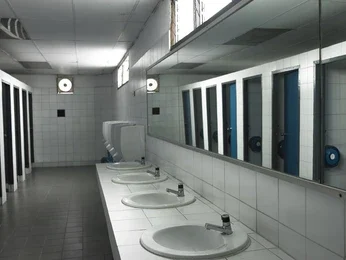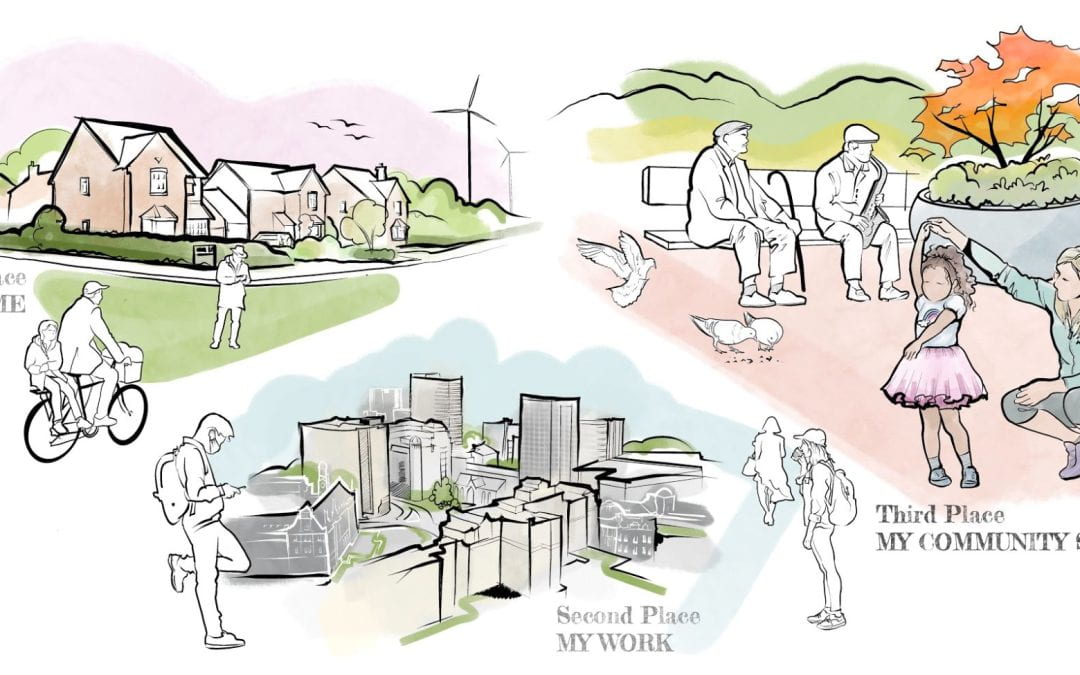With in-school phone bans becoming more common nationwide, many students are wondering what this entails and how it might look for the Hastings school district. To preface, the administration and Board of Education are not currently making any decisions regarding the possibility of a district-wide phone ban for students; however, with the rise of mental health issues among teenagers in the United States, largely as a result of social media use, many states are considering banning phone use in public schools to combat this issue. In Connecticut, the state Board of Education has already taken steps to do so and recommended that all public schools enforce a phone policy restricting phone use for students during school hours. While this was only a recommendation and not a requirement, many schools in Connecticut have adopted cell phone bans.
In terms of the state of New York, public school administrators across the state are expecting news regarding phone policies in schools from Governor Kathy Hochul as early as January 2025. This news could go in any direction; like Connecticut, Governor Hochul might recommend that all public schools ban cell phone use during the school day, or it could be something as simple as a suggestion that each school should create its own phone policies. With the spread of this news through Hastings High School, many students have expressed concerns. However, it is important to know that this decision is largely out of the administration’s hands, and the choice made will undoubtedly be with the well-being of students at its forefront.
Seeking to gather student opinions on the topic, a survey was conducted asking students to share their thoughts and ideas regarding phone policies at Hastings High School. The survey consisted of five questions about the current phone policy and the possibility of a phone ban.
Overall knowledge of the possibility of a new phone policy varied immensely, with some students having no information and others having a fair amount. However, many students who said that they knew a lot about the issue had inaccurate knowledge that was often blown out of proportion. For example, one student asserted that “[the school] will store [phones] in a box and lock it.” Another student stated that they heard “the school board is going to ban iPhones in school.” These two statements are incorrect and fail to recognize the complexities of the issue.
The second question requested that students share how they feel about the current school phone policy on a scale from one to five, ranging from very opposed to very supportive. Around 63% of respondents answered with a four or five, indicating that they are supportive of the current policy. Around 18% of students responded with a three, indicating indifference to the policy. Only 19% of students reported that they were not in support of the current policy, demonstrating that most students are content with it and think that it is effective.
The third question asked students to elaborate on why they were either in favor or against the policy. One respondent expressed their immense support for the phone pouches “because [phones] distract [students] from [work] and [students] think more clearly and are more focused without them.” Another student who seemed to be slightly more skeptical of the pouches stated that, at first, they were opposed to their enforcement. However, they shared that now, “[the current policy has] helped [them] to retain focus.” Lastly, a student who was entirely against the policy claimed that it was “pointless.” However, the majority of respondents gave positive feedback in regards to the current cell phone policy, many expressing that it has increased their productivity while still allowing them to have access to their phones when it is absolutely necessary.
The fourth question was another scale from one to five, this time asking students to share how they would feel if a phone ban was implemented today. Approximately 75% of respondents responded with a one, indicating that they would be extremely unsupportive of a complete phone ban during school hours. About 18% of students responded with a two, still reflecting unsupportiveness towards the prospect. Altogether, only around 7.5% of students responded with a three, four, or five, indicating that very few would be neutral to or in favor of a phone ban.
The fifth and final question requested elaboration on students’ previous answers. Nearly everyone expressed total opposition to a complete ban. One student addressed the notion that students are void of a social life because of phones in their answer: “People think kids are on their phones 24/7, like during lunch or in the hallways, and not talking to each other, but that is false.” One of the driving arguments for implementing phone bans nationwide is the idea that teenagers lack social skills; however, especially at Hastings High School, this issue is evidently not prevalent for the majority of students. Simply walking through the hallway during passing periods would reveal this fact. Another student expressed that “having a total ban doesn’t teach good habits of phone usage; it makes it seem that the only way to limit usage is total separation, which has negative repercussions in scenarios in which there is no phone access limit.” Both in the near future and far future, this point is important to consider. For example, if students do not have access to their devices for the entire school day, they might feel tempted to spend an excess amount of time on them after school. Additionally, when students transition from high school to college, phone usage will not be regulated, and many might have developed bad habits, such as the one previously mentioned, as a result of a phone ban.
One of the most rampant concerns among the student body regards having the ability to contact loved ones in the case of an emergency. The United States today is ridden with gun violence and the possibility of a school shooting, no matter the school size or location, is never off of the table. Many respondents to the survey expressed this as the primary reason for being opposed to a phone ban.
Even though phone policies are being discussed and debated often, as seen by the immense amount of students who are familiar with the conversations that have been happening around the topic, the district will not blindside anyone when or if they make a decision on the future of phones at Hastings High School. Based on these survey results, it is evident that many HHS students are concerned and want their voices heard. However, students can rest assured that they will have the opportunity to voice their opinions if the district is planning on enforcing a new policy.




















